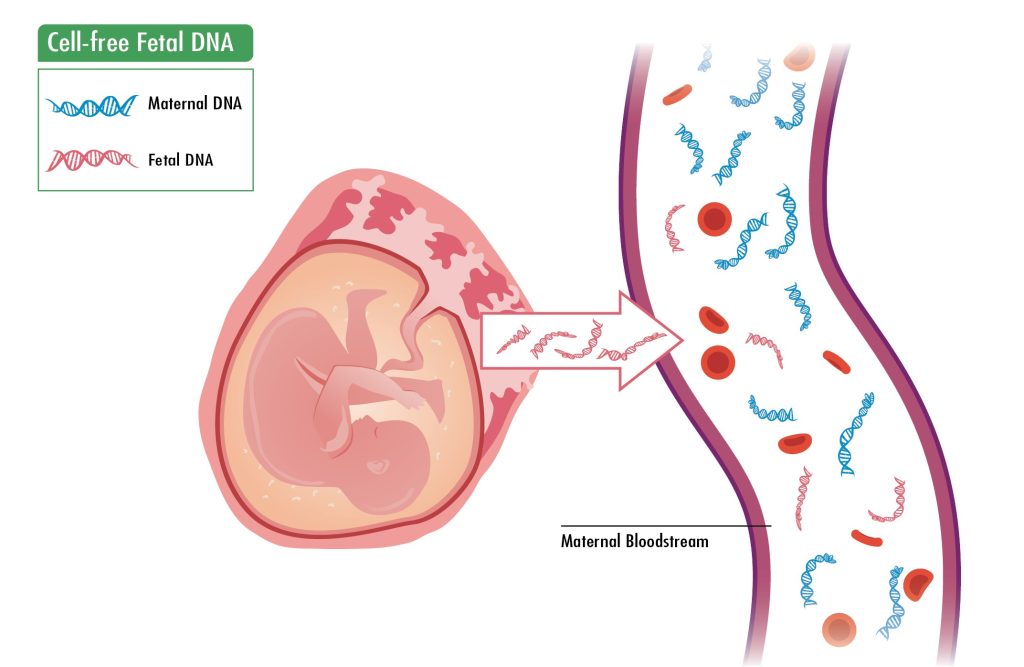Prenatal tests that are non-invasive (NIPT) permits doctors to find chromosomal irregularities, like Down syndrome and aneuploidies of the sexual the chromosomes (trisomy 21, trisomy 18 and trisomy 13). NIPT is also a screening tool for microdeletions that could be the cause of conditions like Turner syndrome, Klinefelter syndrome, and triple X and XYY syndromes.
The NIPT test is an effective instrument to help women and couples make informed decisions regarding their pregnancy. But, the results of the test may also trigger anxiety and even stress for certain patients.

Prenatal Screening for Rare Genetic Disorders
It is a growing method of screening for chromosomal anomalies that can cause genetic disorders. It utilizes a blood sample from mother’s blood for detection of smaller DNA fragments missing (microdeletions) in specific regions of the chromosome.
Advanced NIPT tests utilize sequencers that are able to detect microduplications or deletions. It can also screen for uncommon chromosomal anomalies, including syndromic conditions like DiGeorge syndrome or deletions in the X-chromosome. This can cause Turner as well as Klinefelter syndromes.
The NIPT test is able to detect Down syndrome as well as other trisomies such as trisomy18 (Edwards) as well as trisomy 13 (Patau). Also, it can screen for aneuploidies of either the X or the Ychromosomes. This includes Turner syndrome or an XXY (Klinefelter syndrome). NIPT can also determine the sex of the foetus as early as pregnancy.
Non Invasive Prenatal Testing for Rare Conditions
The test, based on the analysis of circulating cell-free fetal DNA (cff-DNA) found in mother’s bloodstream, can be an alternative that is safe to unsafe prenatal tests, such as amniocentesis or chorionic villus sampling. The procedures carry a 1- percent chance of miscarriage.
The NIPT can identify aneuploidies, such as trisomies that can trigger Down syndrome as well as Edwards syndrome. The same is true for microdeletions of chromosomes that can cause Patau as well as Kleinfelter syndrome. It also can determine the date of sex at nine weeks gestation far prior to ultrasound.
For women whose NIPT xet nghiem nipt tai ha noi results suggest a high chance of developing a rare disease, the results can be checked by chorionic valus sampling. However, the test has an extremely low rate of false positive. Additionally, the identification of rare illnesses could be impeded by a lower fetal fraction result or additional factors such as the presence of obesity in mothers or autoimmune disorders, that affect the cf-DNA levels in placenta.
Finding Rare Genetic Disorders associated with the NIPT
NIPT can currently identify chromosomal abnormalities, such as trisomy 21 (Down syndrome), trisomy 18, and trisomy 13, which are caused by extra or missing copies of particular chromosomes. It is also beginning to test for genetic diseases that can be caused by mutations in single genes.
These changes result from minor deletions and duplications within specific parts of the genome. Therefore, they are among the most easy to spot. A few advanced NIPTs may also be able to detect uncommon conditions like Turner syndrome and 22q 11.2 deletion syndrome.
Because of its relatively cheap cost and its noninvasive nature it is feasible to use as a screening tool in LMICs as a complement to screening of maternal serum and ultrasound tests. But, the implementation of this method requires technological advancement directed toward low-resource settings and education for health professionals from the community to conduct blood draws as well as examine ultrasound images.
NIPT Benefits for Expectant Parents
For pregnant women, NIPT is typically recommended on the basis of medical guidelines and the OB/GYN. It’s always a good idea to inquire with your insurance company to find out what NIPT is covered as well as the cost out of pocket.
The NIPT test is a screening one that will tell you whether a person is more risk of being affected by certain genetic conditions. However, it can’t diagnose the condition. In a study from 2016, researchers found NIPT has high sensitivity for trisomy 21 in addition to other issues with chromosomes.
It also helps to identify rare genetic diseases that run in the family like cystic fibrosis and Duchenne muscular dystrophy. They also occur at conception for example, thanatophoric Dysplasia. In the past, these disorders could only be diagnosed with an invasive test like amniocentesis or CVS. NIPT could help avoid these costly procedures and increase the likelihood of a positive diagnosis.
Challenges in NIPT for Rare Genetic Disorders
Noninvasive prenatal screening (NIPT) analyzes cell-free fetal DNA that is found in blood of the mother. It is gaining popularity because it permits the detection of chromosomal aneuploidies and determination of the sex that has a lower risk of miscarriage. NIPT is now more accurate in recent years and now includes detection of microdeletions >= 7 MB, and one-gene disorders which are caused by mutations and autosomal dominant inheritance.
Yet, there’s a great deal of effort to be made in order to improve the accuracy and reliability of the NIPT. In particular, the PPVs of various aneuploidies and single gene disorders are different between studies and cohorts of patients and make counseling difficult.
NIPT is at present too costly for LMICs however ongoing sequencing cost declines could make this test more affordable and easily accessible. Health workers in the community are capable of drawing blood, therefore it is straightforward for them to adopt NIPT.

